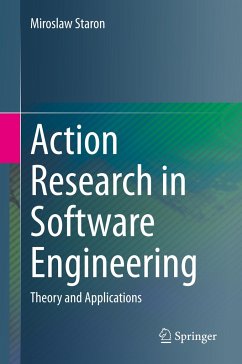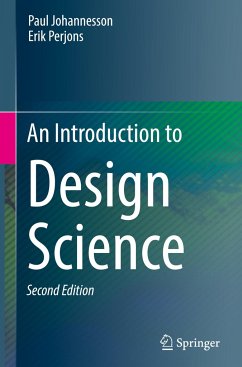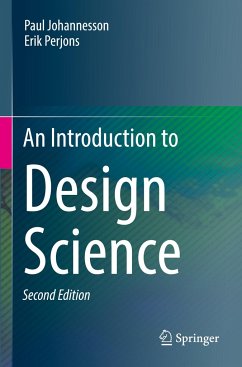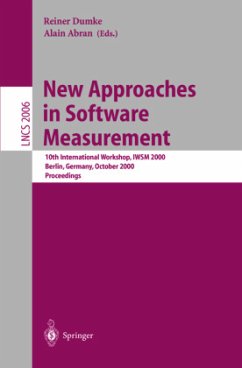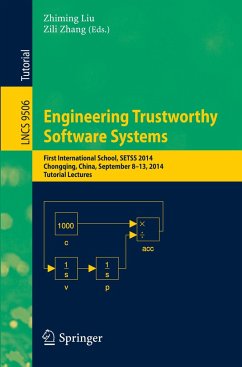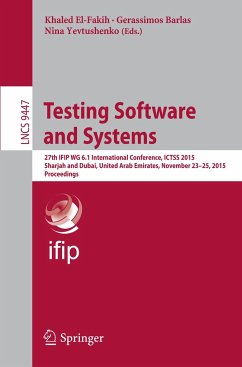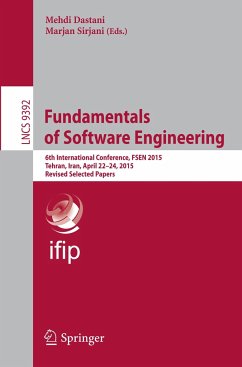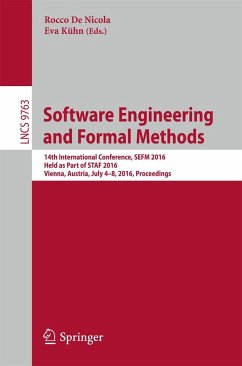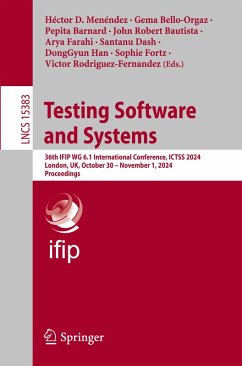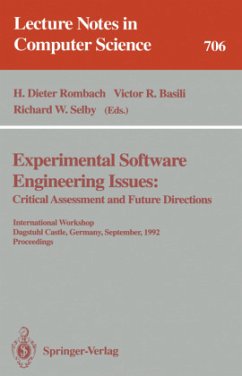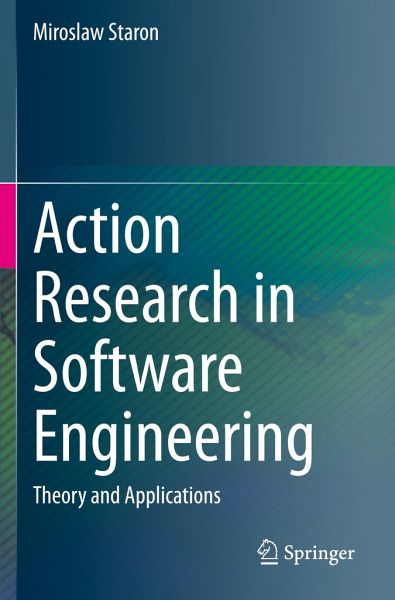
Action Research in Software Engineering
Theory and Applications
Versandkostenfrei!
Versandfertig in 6-10 Tagen
38,99 €
inkl. MwSt.
Weitere Ausgaben:

PAYBACK Punkte
19 °P sammeln!
This book addresses action research (AR), one of the main research methodologies used for academia-industry research collaborations. It elaborates on how to find the right research activities and how to distinguish them from non-significant ones. Further, it details how to glean lessons from the research results, no matter whether they are positive or negative. Lastly, it shows how companies can evolve and build talents while expanding their product portfolio.The book's structure is based on that of AR projects; it sequentially covers and discusses each phase of the project. Each chapter share...
This book addresses action research (AR), one of the main research methodologies used for academia-industry research collaborations. It elaborates on how to find the right research activities and how to distinguish them from non-significant ones. Further, it details how to glean lessons from the research results, no matter whether they are positive or negative. Lastly, it shows how companies can evolve and build talents while expanding their product portfolio.
The book's structure is based on that of AR projects; it sequentially covers and discusses each phase of the project. Each chapter shares new insights into AR and provides the reader with a better understanding of how to apply it. In addition, each chapter includes a number of practical use cases or examples. Taken together, the chapters cover the entire software lifecycle: from problem diagnosis to project (or action) planning and execution, to documenting and disseminating results, including validity assessments for AR studies.
The goal of this book is to help everyone interested in industry-academia collaborations to conduct joint research. It is for students of software engineering who need to learn about how to set up an evaluation, how to run a project, and how to document the results. It is for all academics who aren't afraid to step out of their comfort zone and enter industry. It is for industrial researchers who know that they want to do more than just develop software blindly. And finally, it is for stakeholders who want to learn how to manage industrial research projects and how to set up guidelines for their own role and expectations.
The book's structure is based on that of AR projects; it sequentially covers and discusses each phase of the project. Each chapter shares new insights into AR and provides the reader with a better understanding of how to apply it. In addition, each chapter includes a number of practical use cases or examples. Taken together, the chapters cover the entire software lifecycle: from problem diagnosis to project (or action) planning and execution, to documenting and disseminating results, including validity assessments for AR studies.
The goal of this book is to help everyone interested in industry-academia collaborations to conduct joint research. It is for students of software engineering who need to learn about how to set up an evaluation, how to run a project, and how to document the results. It is for all academics who aren't afraid to step out of their comfort zone and enter industry. It is for industrial researchers who know that they want to do more than just develop software blindly. And finally, it is for stakeholders who want to learn how to manage industrial research projects and how to set up guidelines for their own role and expectations.





